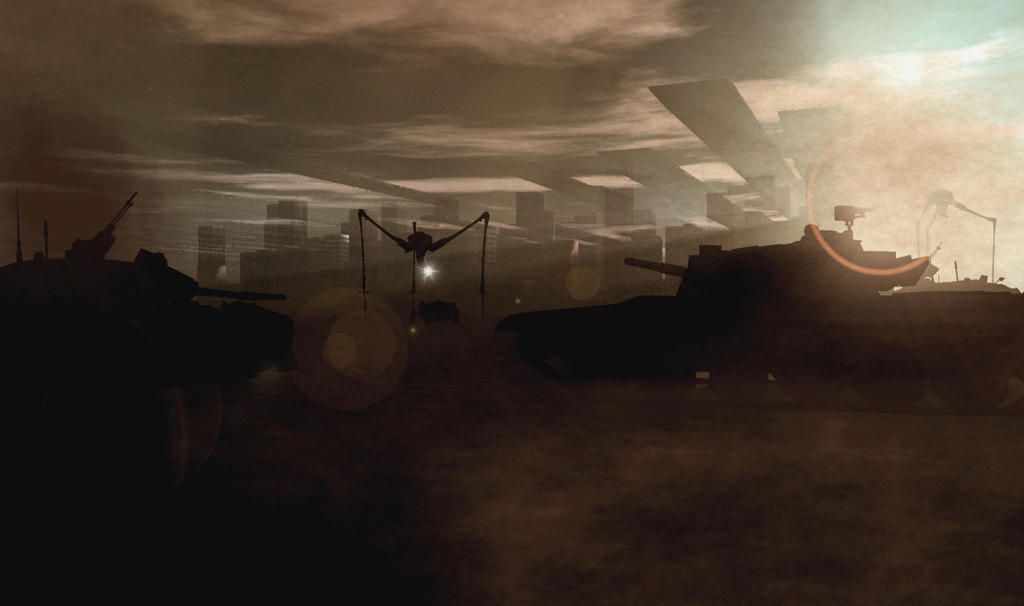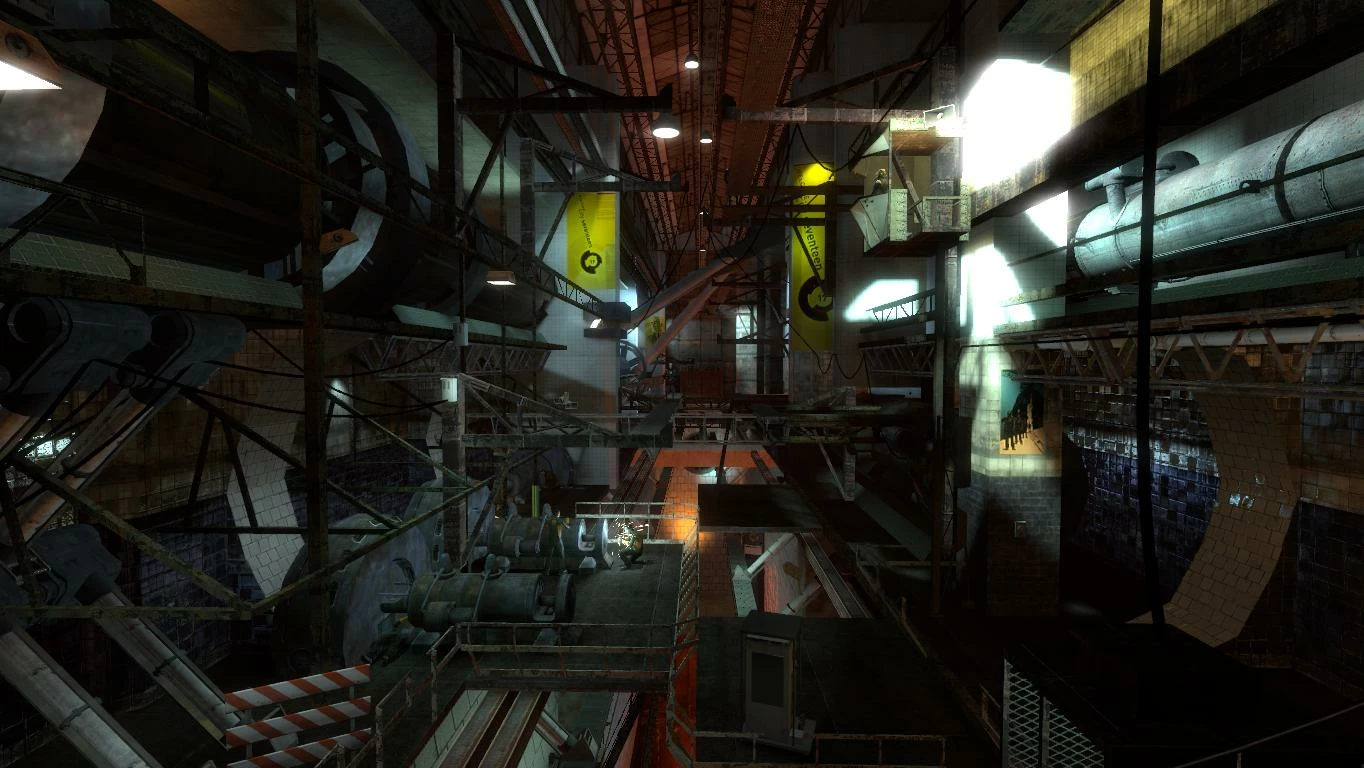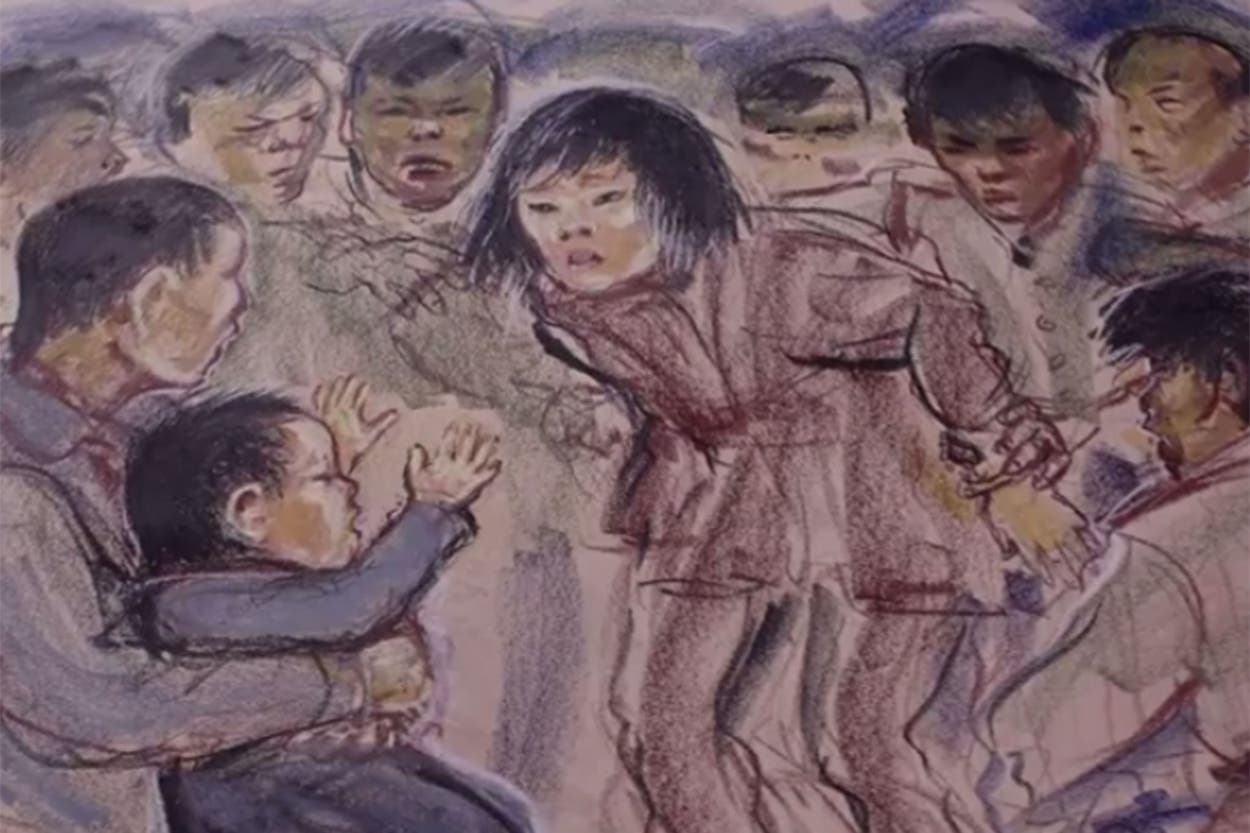
September 2001
The television droned on, casting the morning's routine in a haze of weather forecasts and local chatter. She was at the sink, hastily buttoning her school uniform while her brother hunched over his books, scribbling last-minute homework at the kitchen table. In the corner, Nadia sat surrounded by toys, chattering to herself. Their mother moved around the stove, the familiar clatter of pots and pans the soundtrack to another ordinary day. Then everything stopped.
The news anchor's voice faltered, and the room seemed to hold its breath as the lively music cut to silence. The anchor’s tone grew heavy, the weight of history pressing into their home. “We interrupt this broadcast with breaking news. Reports are coming in that a plane has crashed into the North Tower of the World Trade Center in New York City…”
Her hands froze. The clatter of her brother's pen stopped. Nadia’s toys lay forgotten as the world outside the screen shifted. That moment—that broadcast—became a line dividing their lives. They didn’t yet know how deeply it would scar them.
In the following days, the television was never off. Story after story of bravery and devastation poured in, mixed with something darker, something insidious. Rumors, accusations. The eyes of strangers seemed to harden, darting to her family as if they had become something other, something dangerous.
It didn’t take long for their neighbors—once friendly, once warm—to grow distant. Heavy as a storm cloud, suspicion followed them to the grocery store, the park, and even church. Whispers swirled in their wake, the word "terrorist" slipping like venom from the lips of those who once waved hello.
Only two months after that infamous day, the world they once knew was unrecognizable. School became a battlefield. Her classmates, once indifferent, now targeted her with sharp glares and muttered slurs, their judgments falling like blows. Every day they reminded her of a heritage she was suddenly meant to be ashamed of, a culture now marked by the actions of a few. The stench of those whispered accusations clung to her like smoke, suffocating and inescapable.
The news anchor's voice faltered, and the room seemed to hold its breath as the lively music cut to silence. The anchor’s tone grew heavy, the weight of history pressing into their home. “We interrupt this broadcast with breaking news. Reports are coming in that a plane has crashed into the North Tower of the World Trade Center in New York City…”
Her hands froze. The clatter of her brother's pen stopped. Nadia’s toys lay forgotten as the world outside the screen shifted. That moment—that broadcast—became a line dividing their lives. They didn’t yet know how deeply it would scar them.
In the following days, the television was never off. Story after story of bravery and devastation poured in, mixed with something darker, something insidious. Rumors, accusations. The eyes of strangers seemed to harden, darting to her family as if they had become something other, something dangerous.
It didn’t take long for their neighbors—once friendly, once warm—to grow distant. Heavy as a storm cloud, suspicion followed them to the grocery store, the park, and even church. Whispers swirled in their wake, the word "terrorist" slipping like venom from the lips of those who once waved hello.
Only two months after that infamous day, the world they once knew was unrecognizable. School became a battlefield. Her classmates, once indifferent, now targeted her with sharp glares and muttered slurs, their judgments falling like blows. Every day they reminded her of a heritage she was suddenly meant to be ashamed of, a culture now marked by the actions of a few. The stench of those whispered accusations clung to her like smoke, suffocating and inescapable.

May 2003
He received the draft notice on a bitter, grey morning, the kind where the cold seeped into your bones and refused to leave. The letter, marked with the stern seal of the Selective Service System, felt like a death sentence before it was even opened. Her brother was being sent off to fight in a war they couldn’t even comprehend. A war against an enemy that felt more like a rumor than a real threat. The absurdity of it hung in the air, unspoken but palpable.
"Take care of each other, and don’t stop fighting." His words were rushed, almost drowned out by the shouting of soldiers rounding up the men on their street. Those words were the last thing she clung to as they handed him a gun, barely enough time to say goodbye before the transport doors slammed shut. The cold emptiness in her chest deepened as the vehicle rumbled away, taking her brother—and part of her heart—with it.
She stood there, clutching her mother and sister, the silence between them louder than the retreating trucks. In that moment, she swore to herself she would be strong for them, no matter what came next. No matter the cost. But none of them could have imagined what did come next. The world didn’t even have time to comprehend it all before it was over. The invaders swept through like a plague, an army unlike any that had ever been faced before. Nation after nation fell, their military might slashed to pieces as if they were paper. Governments scrambled to react, but they were too slow. Too human.
Surrender didn’t mean salvation. Those who laid down their weapons were shipped off—hauled away in monstrous machines that roared and flew like some twisted fusion of man and beast. Once they were gone, they were never seen again. The powerful—the politicians, the billionaires, even the greatest minds in science—had two choices: swear allegiance to the invaders' new spokesman or meet the sword. It didn’t take long for the old world to collapse. One by one, the gears of society ground to a halt, leaving behind a world devoid of law and order.
Law enforcement became a shadow of itself. Some joined their new overlords, driven by fear or greed, while others were branded traitors, their faces plastered on wanted posters. The streets were no longer policed; they were claimed.
"Take care of each other, and don’t stop fighting." His words were rushed, almost drowned out by the shouting of soldiers rounding up the men on their street. Those words were the last thing she clung to as they handed him a gun, barely enough time to say goodbye before the transport doors slammed shut. The cold emptiness in her chest deepened as the vehicle rumbled away, taking her brother—and part of her heart—with it.
She stood there, clutching her mother and sister, the silence between them louder than the retreating trucks. In that moment, she swore to herself she would be strong for them, no matter what came next. No matter the cost. But none of them could have imagined what did come next. The world didn’t even have time to comprehend it all before it was over. The invaders swept through like a plague, an army unlike any that had ever been faced before. Nation after nation fell, their military might slashed to pieces as if they were paper. Governments scrambled to react, but they were too slow. Too human.
Surrender didn’t mean salvation. Those who laid down their weapons were shipped off—hauled away in monstrous machines that roared and flew like some twisted fusion of man and beast. Once they were gone, they were never seen again. The powerful—the politicians, the billionaires, even the greatest minds in science—had two choices: swear allegiance to the invaders' new spokesman or meet the sword. It didn’t take long for the old world to collapse. One by one, the gears of society ground to a halt, leaving behind a world devoid of law and order.
Law enforcement became a shadow of itself. Some joined their new overlords, driven by fear or greed, while others were branded traitors, their faces plastered on wanted posters. The streets were no longer policed; they were claimed.

November 2003
The floodlights flickered above the barren camp, casting jagged shadows that danced across the desolate ground. The air hung heavy, thick with the stench of sweat, blood, and the sharp bite of industrial labor. It clung to the skin, a suffocating veil that blurred everything in its reach. Among the shadows, small figures moved—children with hollow eyes and weary, fragile limbs—endlessly toiling under the cold, watchful gaze of the White Masks.
The children who dared resist were isolated, cut off from the others, and thrown into featureless cells where time ceased to exist. In those sterile confines, they faced a brutal onslaught of sensory overload: strobe lights that pulsed in maddening rhythms, piercing white noise that never ceased, and disorienting patterns that twisted before their eyes. It was relentless. The assault on their senses wasn’t designed to kill—no, it was far more insidious than that. It was crafted to strip away their mental defenses, tearing down their willpower inch by inch until only compliance remained.
Many didn’t survive it. Their resistance, once fierce, was slowly ground down by the Combine’s iron grip. Days blended into nights, and soon enough, the rebellious spark in their eyes was snuffed out, replaced by dull compliance, worn thin by mental exhaustion.
The few who remained defiant were made into public examples. They were dragged before the other children, shackled and bound, their once-strong voices silenced by the weight of chains and fear. Overseers gathered the masses to witness the punishments—harsh reprimands for disobedience, served cold under the glaring floodlights. It wasn’t just about control. It was about breaking them, sowing fear deep into their hearts, and reminding them that order came at a cost. She never felt compelled to speak up for those who wouldn’t do the same for her. Her classmates? They had become enemies long before the camps. Teachers? They were nothing more than enforcers of the same system that sought to crush her. All except one.
Agent Kaluuya stood apart from the rest—his skin deep, a rich mahogany that glowed under the harsh lights like polished wood. He wasn’t like the others. He had been assigned to her, and in his careful gaze, she saw something she hadn’t seen in a long time: recognition. Kaluuya didn’t look at her with disdain or pity. He saw her for what she was—a sharp blade, yet to be tempered. She could feel it in the way he watched, the subtle flicker of understanding. There was raw potential in her, the potential that could be honed into something dangerous, something powerful. A steel edge veiled in iron, waiting to strike.
The children who dared resist were isolated, cut off from the others, and thrown into featureless cells where time ceased to exist. In those sterile confines, they faced a brutal onslaught of sensory overload: strobe lights that pulsed in maddening rhythms, piercing white noise that never ceased, and disorienting patterns that twisted before their eyes. It was relentless. The assault on their senses wasn’t designed to kill—no, it was far more insidious than that. It was crafted to strip away their mental defenses, tearing down their willpower inch by inch until only compliance remained.
Many didn’t survive it. Their resistance, once fierce, was slowly ground down by the Combine’s iron grip. Days blended into nights, and soon enough, the rebellious spark in their eyes was snuffed out, replaced by dull compliance, worn thin by mental exhaustion.
The few who remained defiant were made into public examples. They were dragged before the other children, shackled and bound, their once-strong voices silenced by the weight of chains and fear. Overseers gathered the masses to witness the punishments—harsh reprimands for disobedience, served cold under the glaring floodlights. It wasn’t just about control. It was about breaking them, sowing fear deep into their hearts, and reminding them that order came at a cost. She never felt compelled to speak up for those who wouldn’t do the same for her. Her classmates? They had become enemies long before the camps. Teachers? They were nothing more than enforcers of the same system that sought to crush her. All except one.
Agent Kaluuya stood apart from the rest—his skin deep, a rich mahogany that glowed under the harsh lights like polished wood. He wasn’t like the others. He had been assigned to her, and in his careful gaze, she saw something she hadn’t seen in a long time: recognition. Kaluuya didn’t look at her with disdain or pity. He saw her for what she was—a sharp blade, yet to be tempered. She could feel it in the way he watched, the subtle flicker of understanding. There was raw potential in her, the potential that could be honed into something dangerous, something powerful. A steel edge veiled in iron, waiting to strike.

July 2009
Her spirit, unyielding in the face of torment, had driven her to survive, to rise above. It wasn’t just endurance that set her apart, but cold, calculated submission. Her intelligence guided her like a compass, whispering that resistance was futile—but survival? That was a game she could win. The overseers took notice. Her sharp mind, quick to adapt and eager to excel, piqued their interest. She lost friends along the way, not to death, but because they had become dead weight, weak links she couldn’t afford to carry. She severed those bonds without hesitation. Friends became rivals, and the last six years turned into a battlefield, every interaction a calculated move in a game she couldn’t afford to lose.
The envy of others was a distant, incomprehensible thing to her. Why should they envy what she had earned through sacrifice and relentless determination? Their gazes, filled with bitterness, meant nothing. She was playing the long game, and they were mere obstacles, already lost to the past.
For children like her, the Combine's indoctrination worked with frightening efficiency. The brainwashing, once met with fiery defiance, had reshaped them into obedient, dependable enforcers. Where rebellion once burned in their eyes, now there was only cold precision. They became the eyes and ears of the Combine, executing orders without question, without hesitation. Their old lives—the innocence, the friendships, even the pain of their pasts—became distant memories, fading into myth. What was compassion to a well-oiled machine? What was humanity but a weakness they had been trained to expel?
The Combine had succeeded. They turned once-defiant children into cogs in their vast totalitarian machine, each one a servant of the regime, executing duties with surgical efficiency. The transformation was complete, their spirits stripped bare and reshaped into something mechanical, something loyal. The ideology of humanity, once central to their identity, was now a forgotten relic, crushed under the weight of obedience.
The envy of others was a distant, incomprehensible thing to her. Why should they envy what she had earned through sacrifice and relentless determination? Their gazes, filled with bitterness, meant nothing. She was playing the long game, and they were mere obstacles, already lost to the past.
For children like her, the Combine's indoctrination worked with frightening efficiency. The brainwashing, once met with fiery defiance, had reshaped them into obedient, dependable enforcers. Where rebellion once burned in their eyes, now there was only cold precision. They became the eyes and ears of the Combine, executing orders without question, without hesitation. Their old lives—the innocence, the friendships, even the pain of their pasts—became distant memories, fading into myth. What was compassion to a well-oiled machine? What was humanity but a weakness they had been trained to expel?
The Combine had succeeded. They turned once-defiant children into cogs in their vast totalitarian machine, each one a servant of the regime, executing duties with surgical efficiency. The transformation was complete, their spirits stripped bare and reshaped into something mechanical, something loyal. The ideology of humanity, once central to their identity, was now a forgotten relic, crushed under the weight of obedience.

August 2009
The train screeched into the subway station with a deafening grind of metal, jolting her from the haze of exhaustion. Through the grimy windows, she could barely make out the distorted cityscape beyond. Her heart thudded in her chest—a strange mix of dread and curiosity gnawing at her as she stared out at a once familiar world. Now, that skyline was scarred, twisted by the alien conquerors’ grip. Towering metallic structures clawed their way into the heavens, casting long, menacing shadows over the desolate streets below. A thick, unnatural haze clung to the air, suffocating the life out of the landscape and leaving it cloaked in an eerie veil.
As she stepped off the train, her legs stiff and heavy, she joined the other passengers who moved cautiously along the cracked subway platform. The echoes of their footsteps seemed louder than they should have been as if the city itself had been hollowed out. The moment she surfaced above ground, her senses were overwhelmed by the unfamiliar sounds of this conquered metropolis. The low hum of Combine terminals buzzed ominously, while the eerie beeps from a white-masked figure patrolling the streets caused her to freeze in place. The figure moved methodically, disappearing into one of the alien structures that loomed above, a towering monument to the invaders' dominance.
She glanced up at the grotesque structure, and a gasp escaped her lips. It clung to the human-built infrastructure like a parasite, a tumor woven into the very heart of the city. The alien edifice pulsed with unnatural life, a constant, oppressive reminder of the new order that now reigned over everything she once knew.
And yet, beneath the heavy weight of capitulation, there were signs of resistance. Her eyes caught the movements of soldiers threading through the rubble-strewn streets with purpose in their step. Unlike the cold, emotionless masks of the Combine, these soldiers’ faces were hardened, their expressions set with grim determination. Makeshift shelters had sprung up in the shadows of the towering monoliths, huddled together like defiant survivors in the belly of the beast. It wasn’t much, but it was something—a flicker of rebellion in a world smothered by alien rule.
As she stepped off the train, her legs stiff and heavy, she joined the other passengers who moved cautiously along the cracked subway platform. The echoes of their footsteps seemed louder than they should have been as if the city itself had been hollowed out. The moment she surfaced above ground, her senses were overwhelmed by the unfamiliar sounds of this conquered metropolis. The low hum of Combine terminals buzzed ominously, while the eerie beeps from a white-masked figure patrolling the streets caused her to freeze in place. The figure moved methodically, disappearing into one of the alien structures that loomed above, a towering monument to the invaders' dominance.
She glanced up at the grotesque structure, and a gasp escaped her lips. It clung to the human-built infrastructure like a parasite, a tumor woven into the very heart of the city. The alien edifice pulsed with unnatural life, a constant, oppressive reminder of the new order that now reigned over everything she once knew.
And yet, beneath the heavy weight of capitulation, there were signs of resistance. Her eyes caught the movements of soldiers threading through the rubble-strewn streets with purpose in their step. Unlike the cold, emotionless masks of the Combine, these soldiers’ faces were hardened, their expressions set with grim determination. Makeshift shelters had sprung up in the shadows of the towering monoliths, huddled together like defiant survivors in the belly of the beast. It wasn’t much, but it was something—a flicker of rebellion in a world smothered by alien rule.
Last edited:


